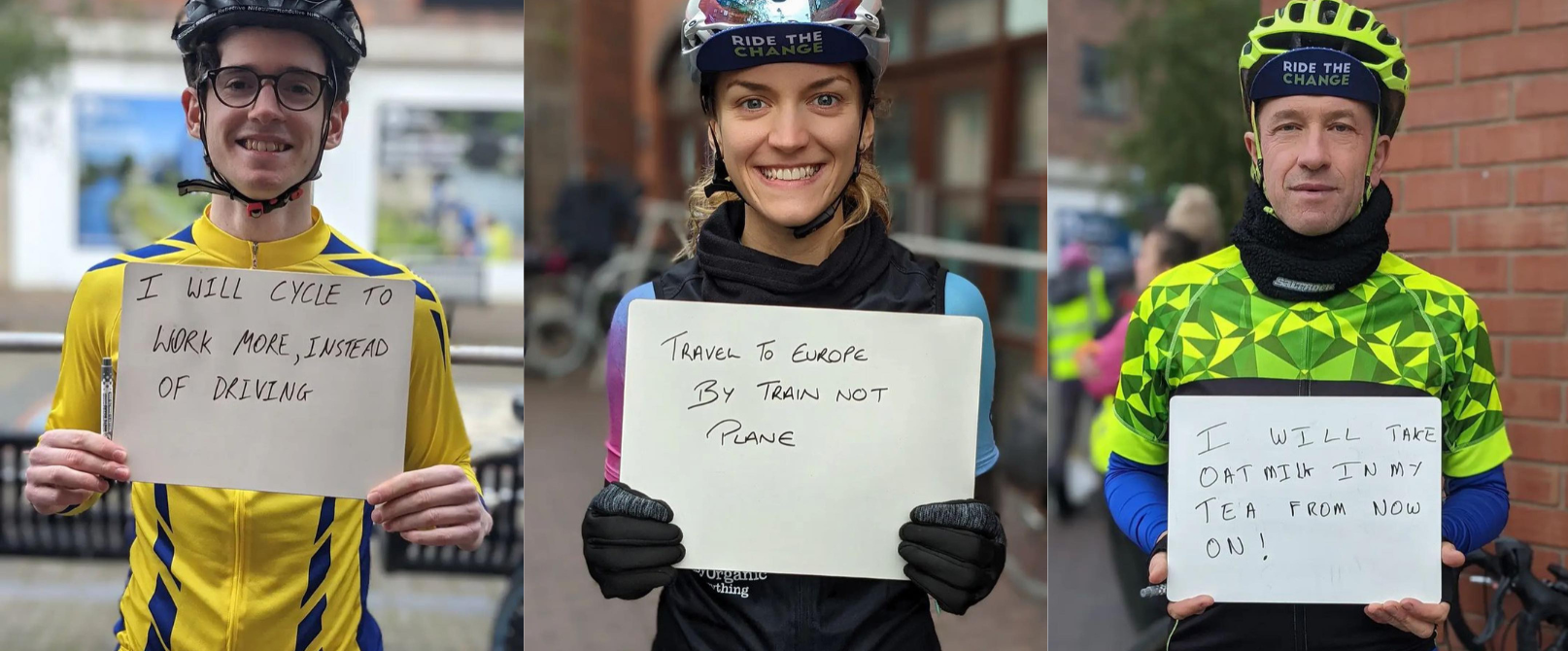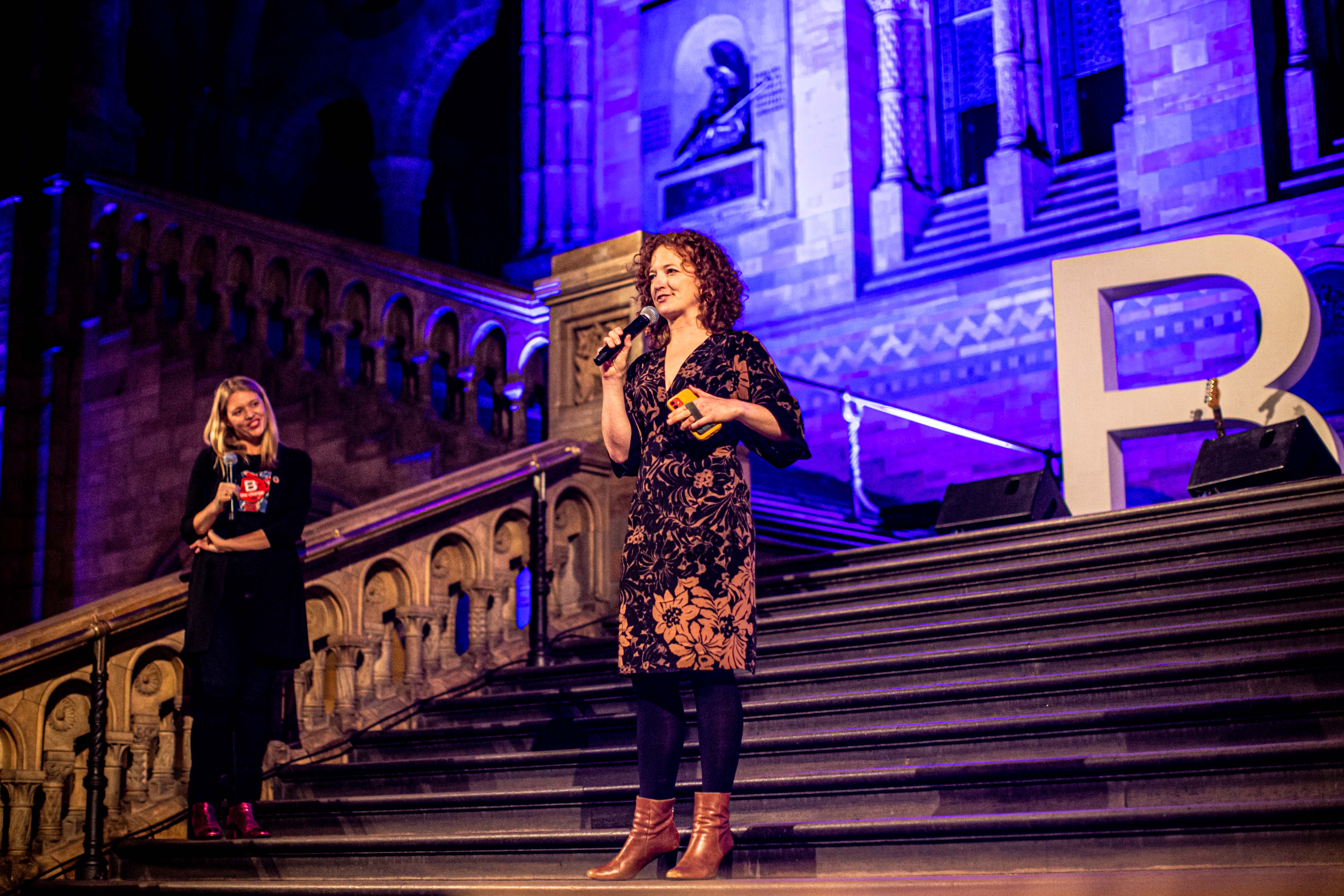#IWD2023 series: Interview with Hermoine Taylor, Founder of Do Nation
Hermione shows how our pledges to ourselves can be the key to creating a better world.
This International Women’s Day, we’re giving the floor to some of the cool female founders that we know, to share insights on their missions, perspectives on future trends for their purpose-led industries, and what they’ve got planned for the next year.
To continue this mini series, we’re speaking with Hermione Taylor, Founder of Do Nation. Hermione was ahead of the curve when it came to thinking about how our pledges for ourselves can have a profound impact on behaviour change, and how this is key to creating a better world. The theory goes like this: If changing behaviours was easy, we’d all be super-fit with PhDs, empty inboxes and spotless bathrooms. By making small pledges to ourselves, we stick to our new habits, and our small actions add up, whether it’s turning down the thermostat, or suggesting something planet-friendly at work. Interesting, right? Let’s find out more!
Could you tell us a bit about your professional background and your route into creating DoNation?
I have been passionate about climate change since university; if I had to pin it to one specific moment, it’d be when a friend got me to sign the university’s Sustainability Week pledge, committing to consider the environment in my career choices. The questions and conversations that triggered really made me think differently and… well… had a profoundly lasting impact!
I ended up studying a masters in Environmental Technology, where I researched the impact of pledging on driving pro-environmental behaviours, and the role of behaviour change.
What's your 1-liner mission with Do Nation?
At Do Nation, we believe that motivated and informed people are the key to unblocking progress on sustainability and net zero, now. Our mission is to bring communities together to galvanise millions of people to take meaningful action on climate change.

What were the biggest challenges when beginning the organisation?
I think the biggest challenge is probably finding people good enough and yet mad enough to join you on your journey at the very beginning. At that time when there’s no traction, no funding, and no really clear plan, just a deep belief and passion for an idea.
If I were to be starting Do Nation now, that perhaps wouldn’t have been nearly as much of a challenge, but back in 2010 I was, well, a bit too ahead of the curve. Not many people shared my passionate belief in the role of individual action in addressing climate change, or even for the importance of climate change at all. And even if they did, they (perhaps rightly), saw Do Nation as far too risky to be worth quitting stable employment for.
So I ended up having to go solo for a long time. Now that I do have a super and committed team, I realise just how much I was missing out on.
From your perspective, what actions need to happen to change behaviours and engage in net zero?
I think the first question is why do we need to change behaviours and engage people in net zero? A lot of people think that it’s just down to governments and businesses, and that individuals can’t make much of a difference. But that’s so far from the case.
Of course governments and businesses are hugely responsible, but they’re made up of people. And it’s those people who make the decisions, set policies, drive the innovation. If those people aren’t engaged in net zero, if they haven’t tried to change their behaviours - and seen the opportunities and challenges faced when doing that - then how are they ever going to successfully drive their businesses to net zero?
So - to your question, how do you change behaviours? At Do Nation our belief is that it’s got to be done from within a community. Humans are social beings: we learn from each other, we imitate each other, and we try to impress each other, especially those we’re close to, who we identify with and respect. So to really successfully drive behaviours and deep engagement, change needs to start within a community that people really feel connected to.
Like it or lump it, but one such community that we all spend a lot of time in is the workplace. That’s why at Do Nation we focus on supporting employee engagement.
Can you walk us through a specific example of how an organisation has engaged with Do Nation?
Absolutely! Recently, Scottish Parliament ran a programme with their staff, launching it as part of Scottish Climate Week. Employees were organised into teams based on their departments, with a green team member being the leader for each. Teams then competed to see which could make the most pledges and save the most carbon - pledges like cycling to work, turning their thermostat down a degree, or only buying sustainably sourced fish.
Each pledge is a commitment to trying an action for two months, and it’s shared publicly with your colleagues. We sent tips and reminders along the way, and after the two months users report on how they got on, allowing us to confirm and report on the impact in full.
In total 44% of pledges were confirmed to be successful, saving 54 tonnes of carbon a year. What’s more, 92% of respondents said they were more aware of and interested in sustainability as a result, and 69% were more proud of what the Scottish Parliament is doing around the topics.

Finally, what net zero trends/practices do you think will emerge in the next 2-5 years?
I think engaging, educating, and upskilling the workforce is going to be a big focus of the next few years.
There’s an enormous skills gap that needs to be bridged if we’re going to get anywhere near to reaching our net zero plans. Around 93% of businesses aren’t delivering on their plans, according to recent Bain research, and that is largely down to lack of engagement. Meanwhile, employees are quitting left right and centre because they want to find more purposeful and values-aligned work.
So the employees want to work on climate, and businesses need them to work on climate. But engaging and re-training millions of employees in the complexities of sustainability isn’t going to be simple.
Hopefully, Do Nation will be able to play at least a small part in bridging that gap.
We hope that this interview inspired and informed you, whether it comes to thinking about the impact of small actions, how teams can take on climate change, or just the topic of entrepreneurship! Check out our other International Women’s Day interviews here.